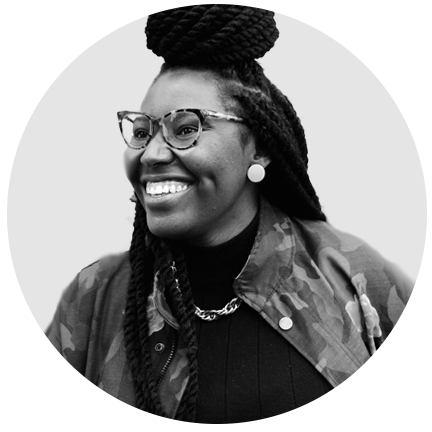Listening Matters
Over the past few years, we’ve talked a lot about listening. With the rise of racial tensions in America along with varying positions within Christendom on justice, women in ministry, and to mask or not to mask, pastors all over the country have been dusting off their sermons on James to call God’s people to “be slow to speak and quick to listen” (James 1:19) in such a noisy world.
But, how do we actually become people who are quick to listen and slow to speak? People who are self-controlled and not so reactionary?
Listen, straight out of Webster’s dictionary, means “to give one’s attention to sound; to take notice of and act on what someone says; to make an effort to hear something.”
Notice that each of these verbs are active. Give. Take. Make. There is nothing passive or even intuitive about listening. Listening takes work. It’s an action. It requires intentionality. Muting the TV so you can listen to your roommate share about their day. Turning the music off, not just lowering the volume, so the person in front of you knows that they have your undivided attention.
One of the most loving things you can do is to give someone your undivided attention. This kind of attention fosters trust, vulnerability and intimacy. Want to develop a better relationship with your child or spouse? Learn how to listen. Want to take a shallow relationship deeper? Make an effort to “hear” something about the person’s story. Their likes, dislikes, feelings, and dreams. Want to effectively share the gospel with your neighbor or build a relationship with someone at church that doesn’t look like you? Genuinely “pay attention” to their worldview.
Here are a few practices that have helped me become a better listener:
Eliminate Distractions
Leaving my phone in the car or in another room, instead of just facing down on the table, eliminates the temptation to check the time or for notifications. Our devices have become such a part of our lives that at times taking that glance or checking a notification isn’t even intentional, it’s more of a habit than anything else. But that mindless gesture can make a person feel unloved, suck vulnerability out of a room, and/or just cause people to shut down rather than open up.
Don’t Interrupt
How many times have you internally or externally rolled your eyes when someone interrupted you? Such a mood killer, right? Interrupting a person while they are speaking is not only rude, but can also be a sign of emotional immaturity. Stop and think about it. Why do you interrupt people when they are speaking? Is it because you think you already know what they are going to say so you want to go ahead and counter their point instead of letting them finish? This is arrogant and impatient. (Also, when did you become omniscient?) Or maybe you interrupt them because you get the sense they are misunderstanding you and you’ve just got to correct them before they get it out? Could this need to interrupt them be fueled by caring too much about what people think of you or an insatiable desire to be viewed a certain way?
When you interrupt someone, you’re not loving them. Love is patient. Love waits for someone to finish their sentence instead of finishing it for them. Love patiently waits for someone to articulate their point, even if it’s wrong, and then comes back to ask more questions and gently correct them. This is what it looks like in real life to be quick to listen and slow to speak.
Don’t Script, Listen
Have you ever been scripting in your head what you are going to say in response to a person while they are still talking? That’s not listening!
I am guilty of doing this often. Particularly when I am sharing the gospel, leading a small group Bible study, or meeting with a person in need of counseling and coffee. See the pattern? Ministry. When I’m in a position where I think of myself to be the answer to a person’s problems or responsible for their growth, I become an ineffective listener. When I’m scripting in my head what I need to say, I lose sight of what I need to hear in order to effectively love and minister to the person in front of me. At that point, I’m no longer responding to the person and will likely project my own experience onto them in the process.
This leads me to my next point.
Don’t Project, Be Curious
You are not omniscient, boo! Your daddy wounds are different from someone else’s daddy wounds. Losing a loved one is likely to hit us all differently. Your struggle with sexual purity is not synonymous with everyone’s struggle. Don’t project, be curious! Don’t presume to know how someone is feeling. Ask them. When they share about the death of their grandmother, don’t use that as an opportunity to first share about the death of yours. Don’t assume that their break-up will be as difficult as yours. People are different, have different life experiences, triggers, and values.
Learn to ask good follow-up questions. As a rule of thumb, when someone shares something personal with me, I try to ask 1-2 questions before I respond. I may ask them to share more about a particular thing they said or ask, “How do you think that experience has impacted or shaped you?” This helps me deepen my knowledge of them. It also lets the person know that I’m interested in getting to know them.
Respond
Remember, listening means “to take notice of and act on what someone says.” Sometimes, taking notice is simply responding, “I get that.” Other times, it’s just listening to affirm feelings, not to fix them. Sometimes all people need is to listen and confirm that they are not crazy for feeling what they feel. But at other times, it is about fixing it. This is especially true when a person has bravely opened up to let you know that you have hurt them in some way. They don’t just want to hear that you are sorry, they want to see and feel your remorse. They want you to “take notice” of their hurt and “act on” what they have shared by behaving differently.
Check-In
One of the moments of the past year that left me feeling immensely loved was when a pastor at my church asked me, “Yana, did you feel heard?” We had left a meeting that left my head spinning and my chest tense. I was fully prepared to get in the car, call a friend, and say to her everything I wish I had said in that meeting. But, that question completely disarmed me and opened up an opportunity to say to him what I was withholding. This small, yet thoughtful gesture opened up the door for me to be vulnerable. Trust has been built. His question proved to me that he cares about what I think and how I feel.
Listen (see what I did there 😂), there are whole textbooks on listening. I actually have one on my shelf. This list is by no means exhaustive and I’m sure you could add a few things of your own. However, when in doubt about how to listen well, turn to the second greatest commandment: Love others as you love yourself. We’ve all been in situations where we’ve felt unheard, ignored, and inevitably unloved. But, we also all (I hope) have experienced moments where we’ve felt heard, cared for, and immensely loved. Take your cue from your experiences on how to be a better listener.
*Yana Jenay Conner is a guest writer. She is a writer and Bible teacher who seeks to help others think well about faith and culture. She currently serves as the Discipleship Director at Vertical Church in Hillsborough, NC.

